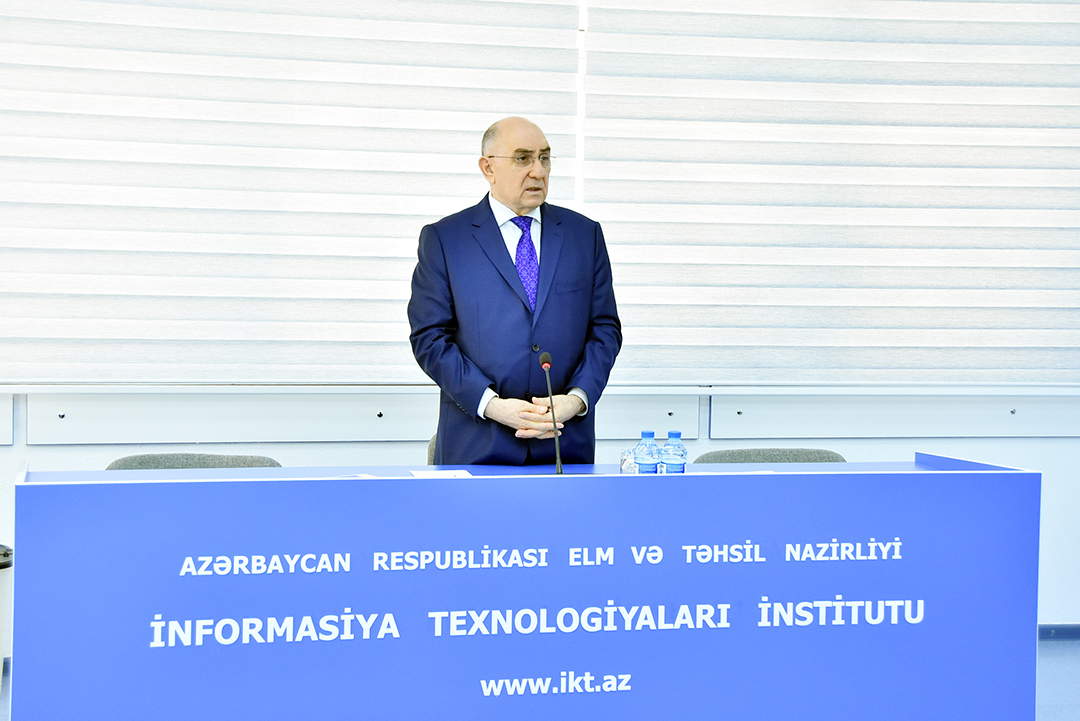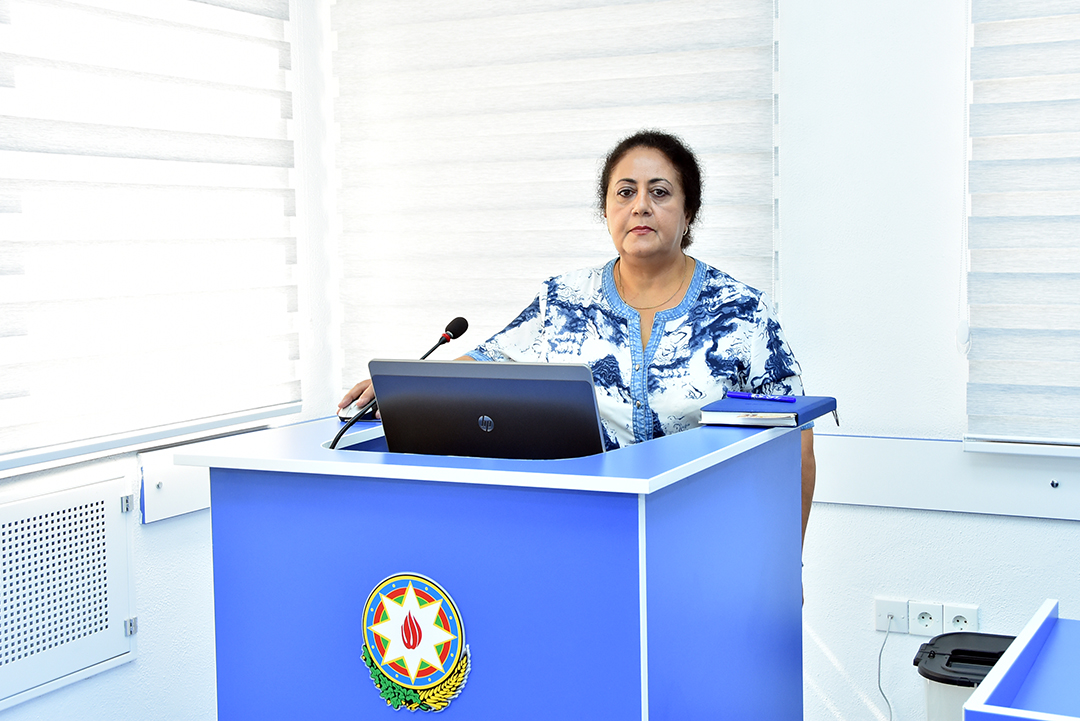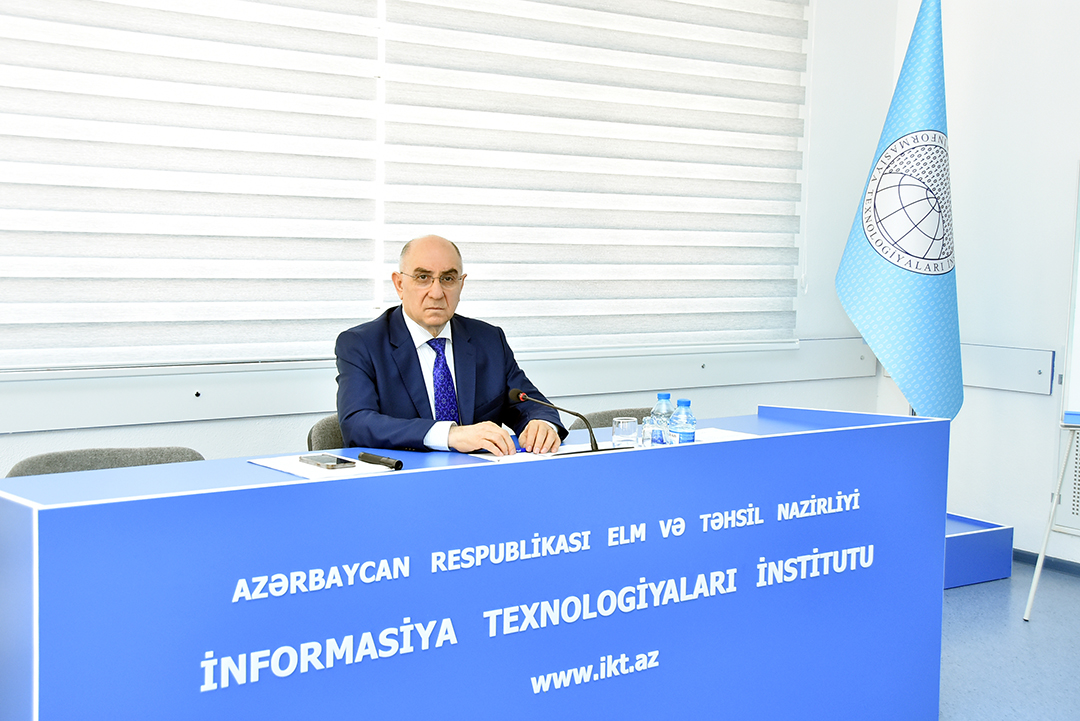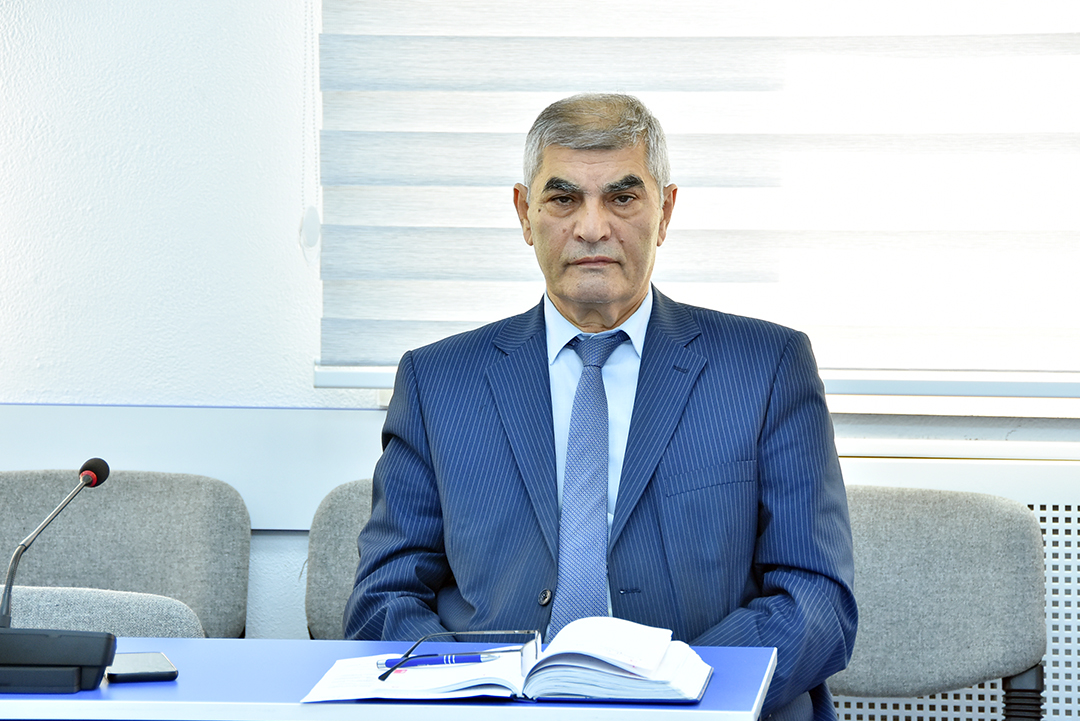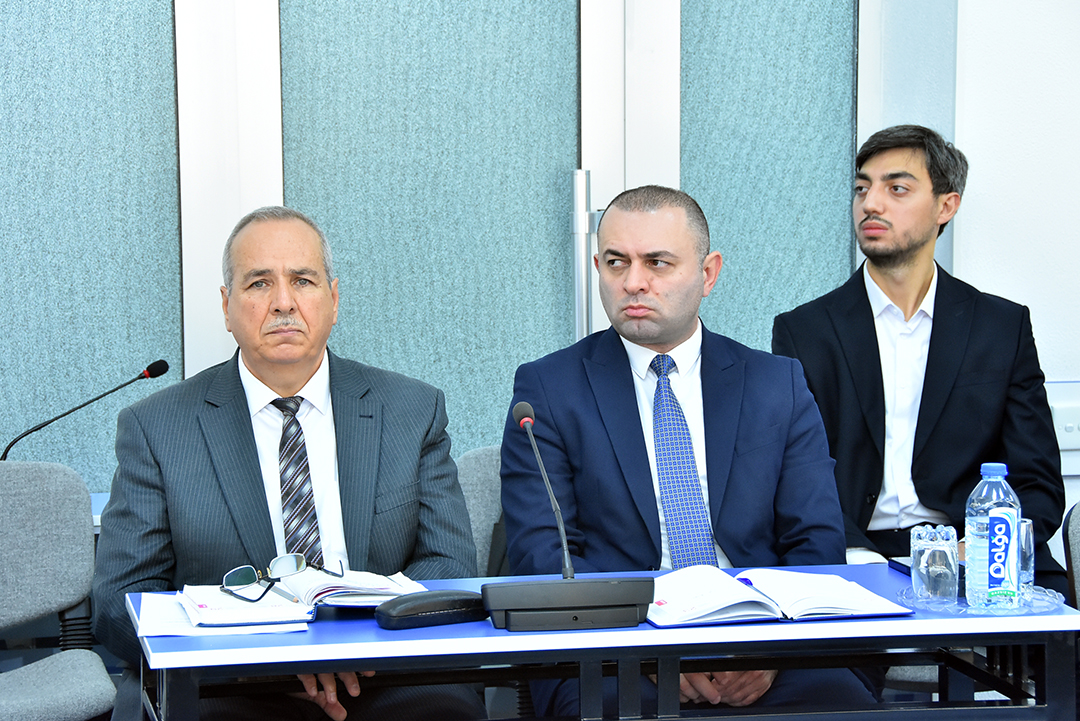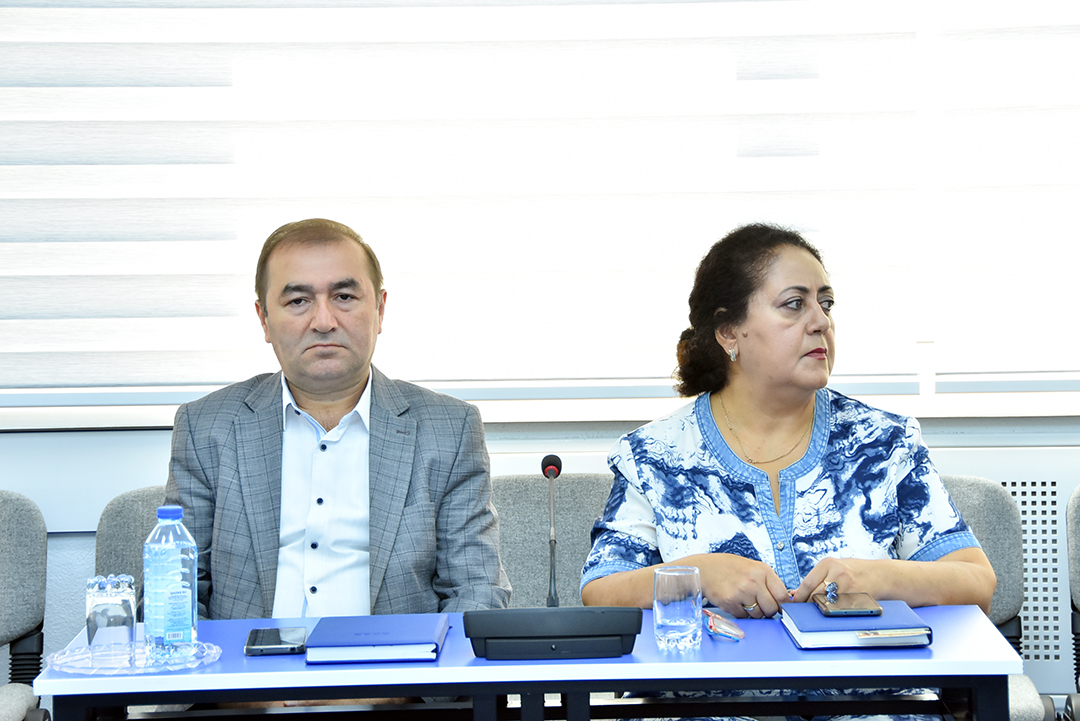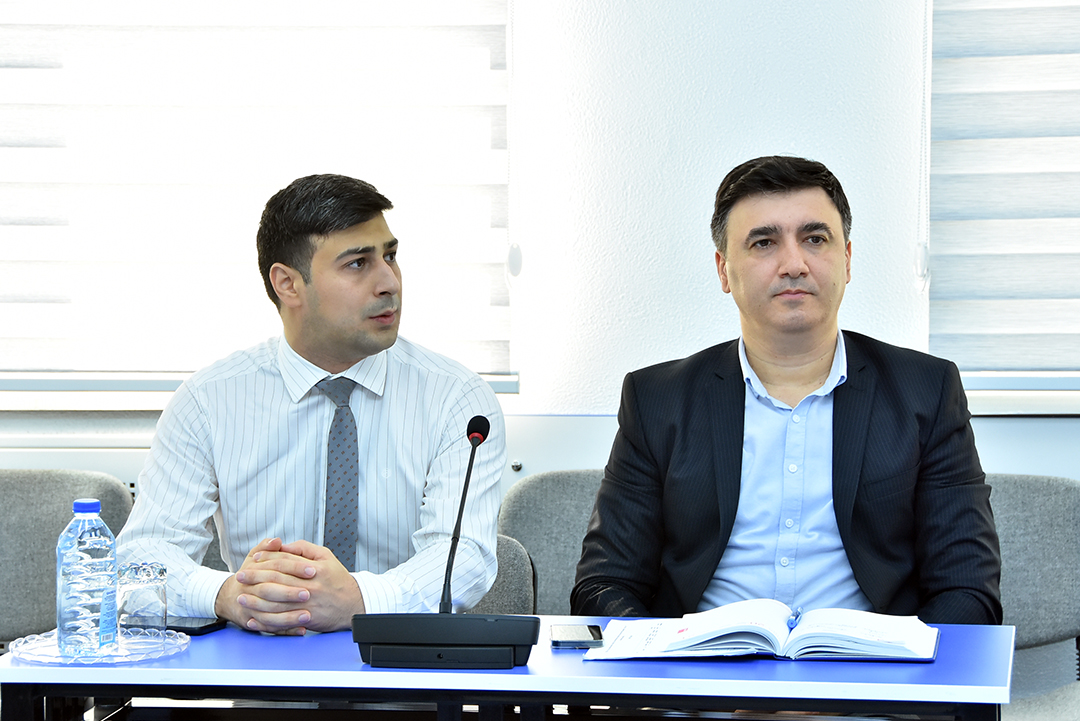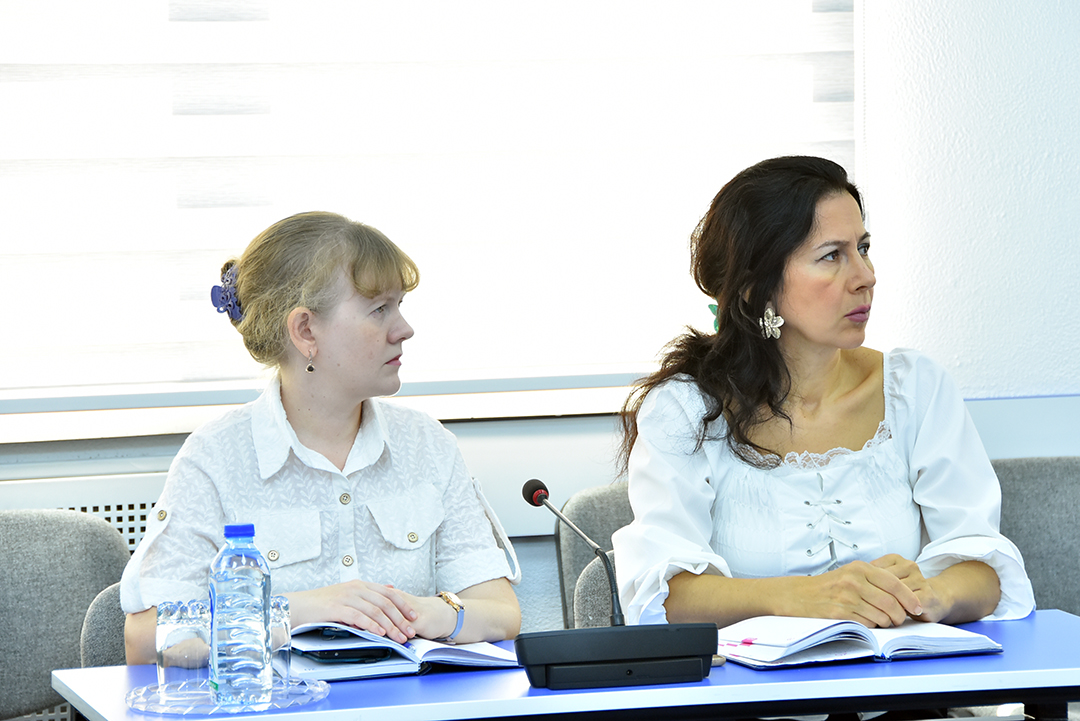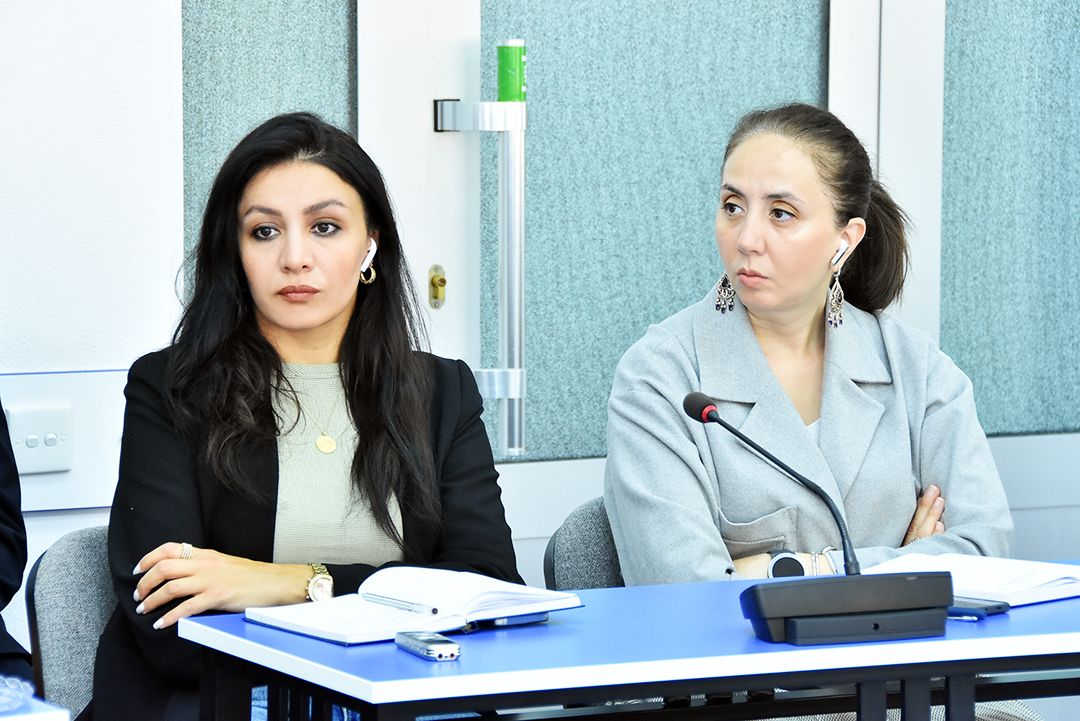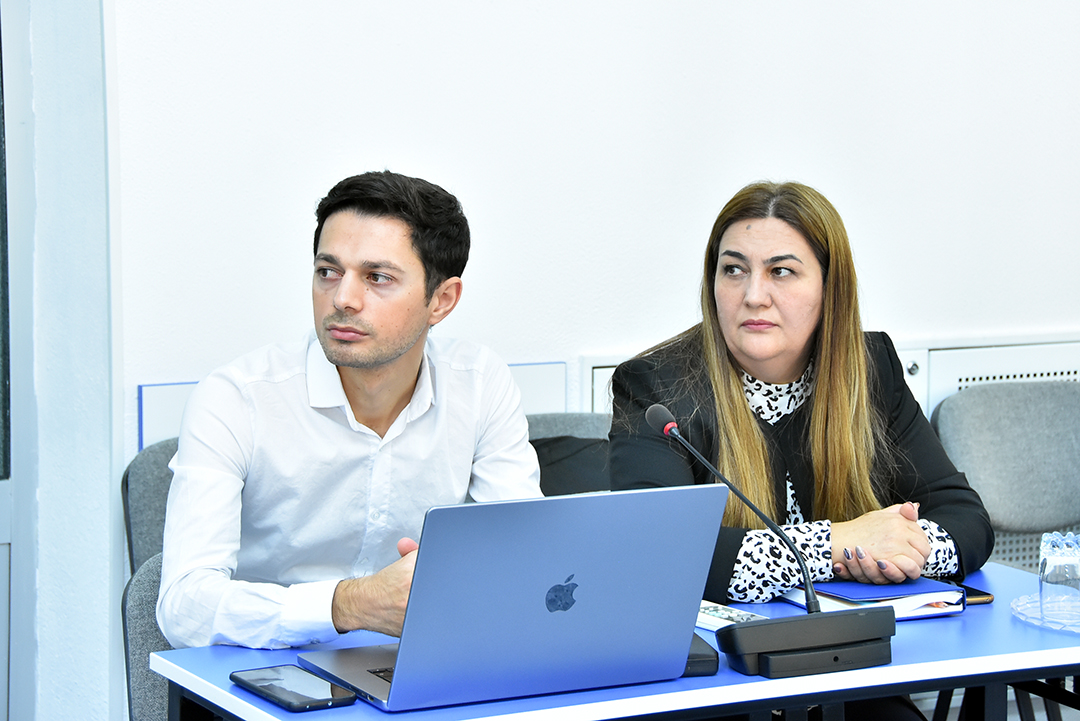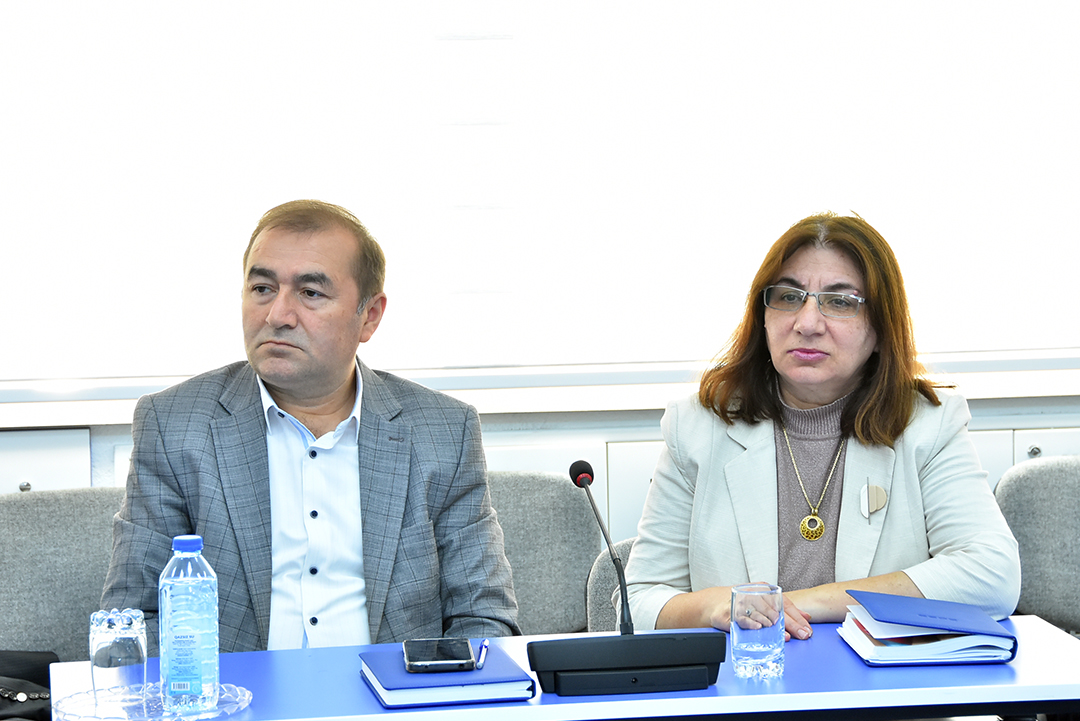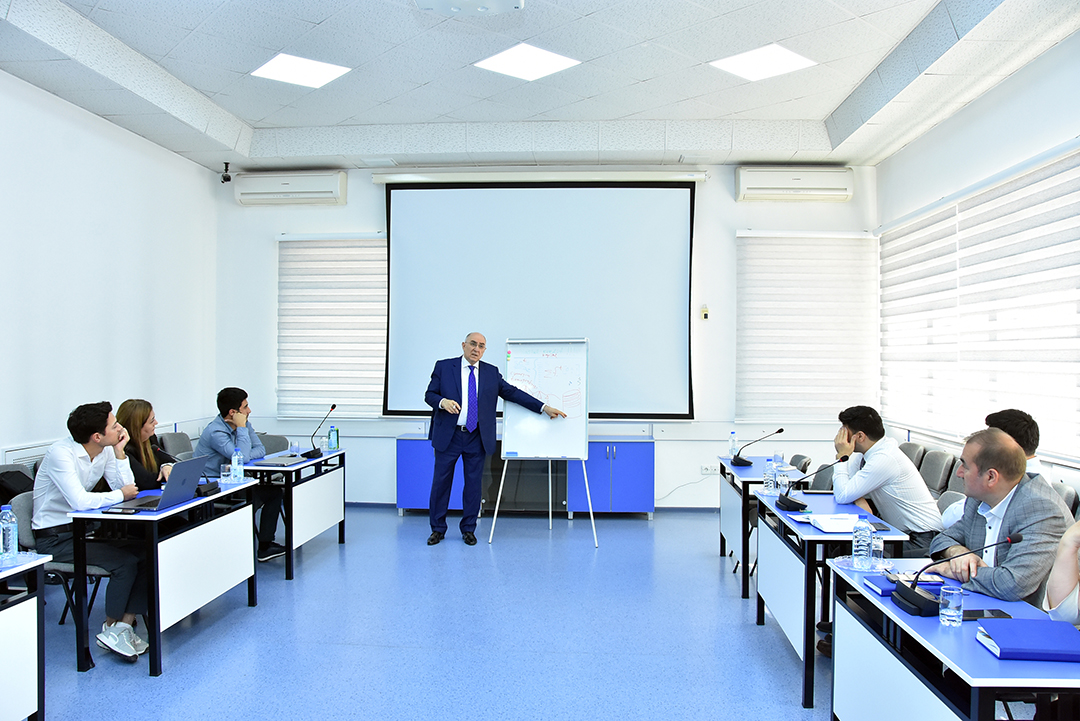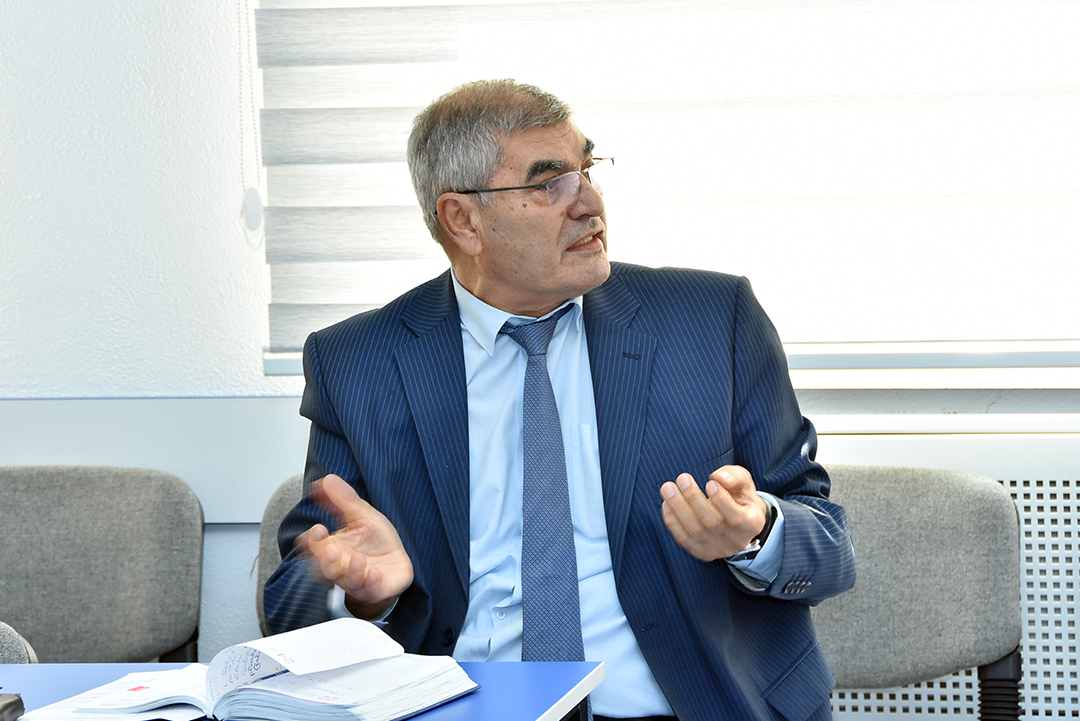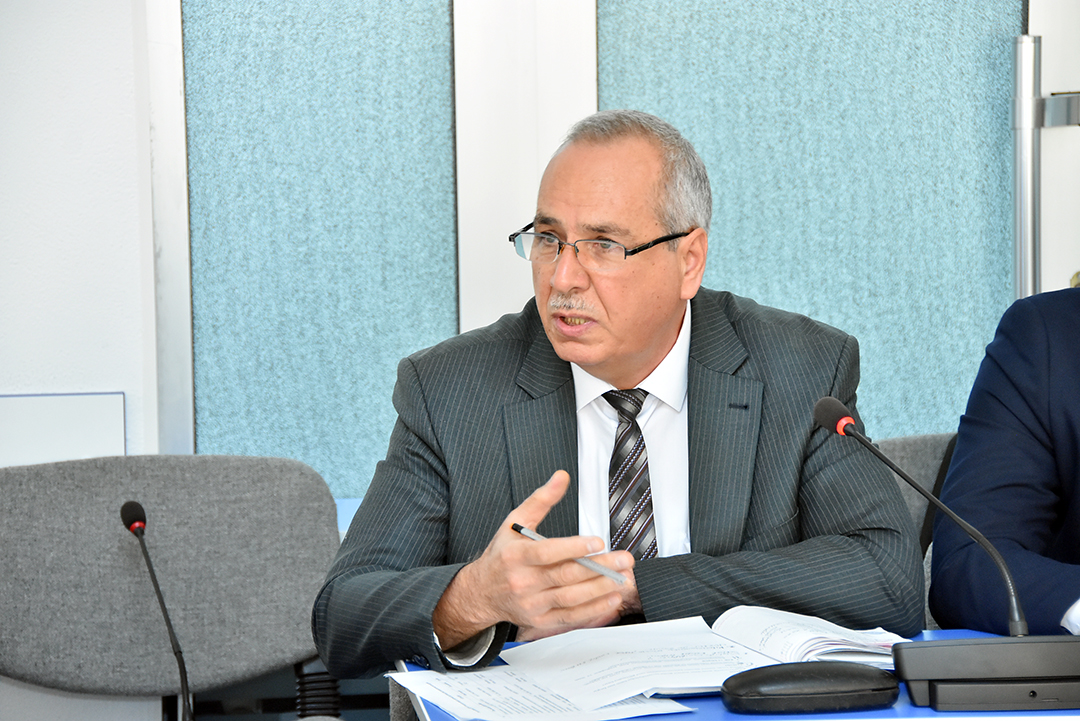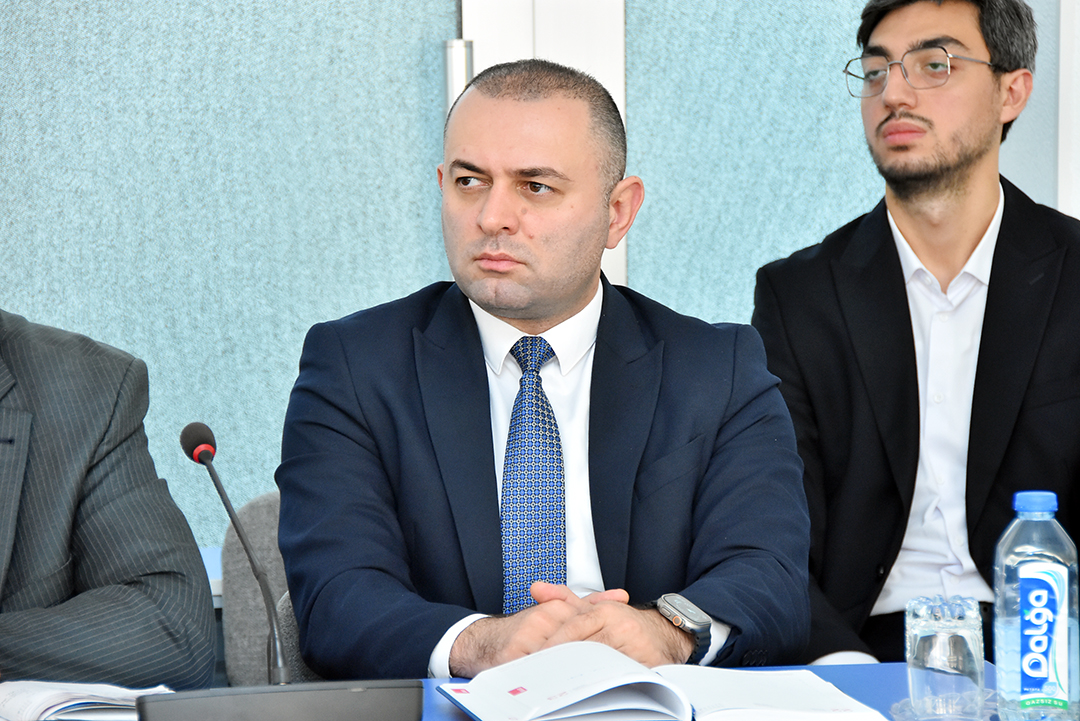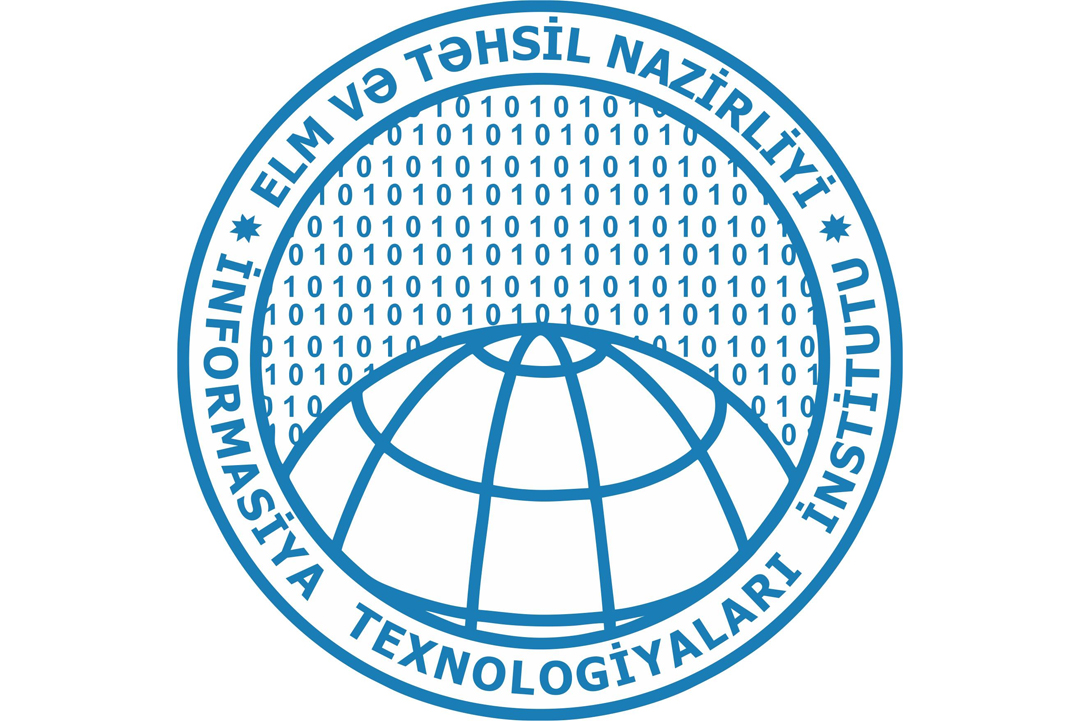NEWS
Discussions were held on cyber sovereignty and social credit issues in the context of digital government
A departmental seminar on the topic “Cyber sovereignty and social credit: a new perspective on digital state infrastructure” was held at the Institute of Information Technology of the Ministry of Science and Education. Initially, Academician Rasim Alguliyev, Vice-President of ANAS, Director-General of the Institute of Information Technology under the Ministry of Science and Education, delivered a speech about the goals and content of scientific seminars. He noted that special attention is paid to increasing the quality of scientific seminars at the institute and organizing them in accordance with new requirements.
Academician R. Alguliyev, who sees scientific seminars as a platform for intellectual dialogue for scientists and researchers, emphasized the importance of every researcher having knowledge about the purpose, content, and classification of scientific seminars.
An academician stated that the institute's main tasks are to bring the advanced experience of developed countries to Azerbaijan, conduct research in priority areas that meet the demands of world science, train highly qualified specialists, and actively participate in prestigious national and international events.
Then, the Institute's Chief Research Fellow, Doctor of Philosophy in Technology, Irada Alakbarova, delivered a report on the topic: “Cyber sovereignty and social credit: a new perspective on digital state infrastructure.” Irada Alakbarova began by discussing the topic's urgency, noting that the rise in cyber-attacks, information conflicts, the overwhelming volume of data in the virtual environment, and personal data theft make it inevitable for the state to adopt new methods and technologies to ensure its cyber sovereignty. She added that citizens are primarily concerned with their personal information being stolen and used for various purposes over the internet and with the increasing threats to digital sovereignty.
The speaker stated that the primary goal of the study is to determine the role of the social credit system in strengthening state cyber sovereignty, as well as to put forward innovative strategies and practical proposals for creating an optimal balance between ensuring state cyber sovereignty and protecting the digital rights of individuals.
Speaking about the components of cyber sovereignty and their role in social credit, I.Alakbarova noted that cyber sovereignty's support for surveillance and control systems encourages states to digitally strengthen their internal governance mechanisms, which in turn leads to the development of a social surveillance model.
The researcher noted that integrating a social credit system into a digital state infrastructure has great potential to strengthen the state's sovereignty in cyberspace. The centralized collection, processing, and secure storage of data are based on the fundamental principles of cyber sovereignty.
She noted that social crediting is closely linked to two main components of state cyber sovereignty: social credit and data sovereignty. Additionally, the researcher emphasized that for a social credit score to be stored reliably and continuously over a long period, the state must have complete control over this data. This requires that the data not be stored on foreign servers.
The integration of cyber sovereignty and social credit systems is opening up new perspectives in the development of digital government infrastructure. This approach offers states new opportunities to effectively manage their digital spaces and provide better services to citizens.
According to a researcher presenting the results of a new study, the social credit system, social observation index, and cyber sovereignty are three key concepts that are mutually complementary and influential.
Irada Alakbarova also provided information on studies related to cyber sovereignty from military and defense, technological, and legislative and regulatory perspectives. She highlighted the aspects of cyber sovereignty that cause international disputes, as well as the potential benefits, opportunities, and risks of social credit systems.
Discussions were held regarding the report, and questions were answered.
Following this, Academician Rasim Alguliyev highlighted the relevance of studies on citizen evaluation through social credit systems in the contemporary age and presented his proposals and recommendations for continuing research in this direction and the formulation of a concept of cyber sovereignty and social credit. The scholar also emphasized the importance of conducting research related to the social credit assessment, the social observation index, social reputation, social rating, social weight, and other similar metrics.
© All rights reserved. Citing www.iсt.az is necessary when using news.

